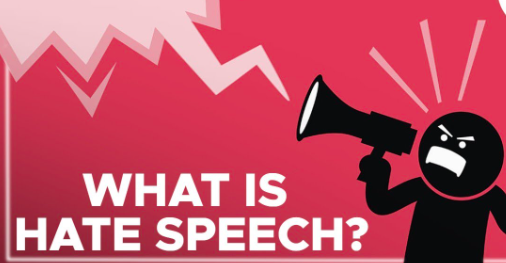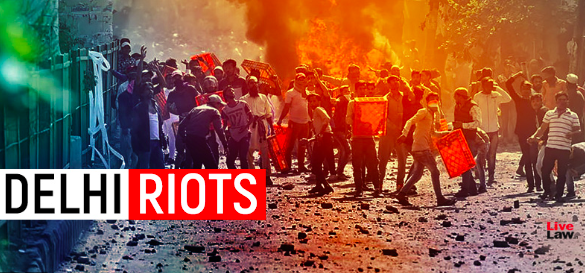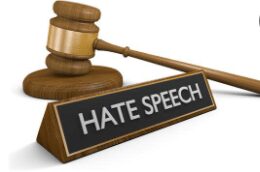Azam Khan, a former minister of Uttar Pradesh and a leader of the Samajwadi Party, was found guilty by the Special Court for MP/MLAs in Rampur for making hateful remarks against Yogi Adityanath, the chief minister of Uttar Pradesh and Prime Minister of India in 2019. He was also fined Rs. 25000 and given a three-year prison sentence.

Azam Khan has been charged with violating Sections 153A and 505 of the Indian Penal Code (IPC), which prohibit inciting hatred among classes on the basis of race, religion, caste, language, or place of residence. Section 505 is interpreted in conjunction with Section 125 of the 1951 Representation of the People Act. Khan might also lose his seat in the House as a result of the Supreme Court’s 2013 decision, which said that any member who receives a conviction for a crime that results in a sentence of two years or more loses their seat immediately and is disqualified from running for office for six years.

HATE SPEECH:
It refers to promoting hatred toward a specific group of people who belong to a different race, religion, caste, gender, sex, and so forth. It perpetuates discrimination by excluding the minority group from society’s social, political, and economic spheres.
The Law Commission of India defined hate speech as having the capacity to incite an individual or group to engage in acts of terrorism, genocide, ethnic cleansing, or antisocial behaviour in its 267th Report.
The Indian Penal Code, which largely addresses offenses against religion, contains the only provisions for hate speech in India; there is no distinct law that defines it.
Although no formal complaint must be made in order to take action, the Supreme Court ordered the police departments of three states to conduct suo moto steps against hate speech and treat it as a crime in October 2022. This decision followed numerous attempts by Vishwa Hindu Parishad to disparage the Muslim community with hate speech.
PROVISIONS REGARDING HATE SPEECH IN IPC AND OTHER ACTS:
The laws against hate speech have their roots in colonial periods when individuals were more likely to be influenced by and respond to religious feelings. All of this contributed to the Indian Penal Code’s 1860 inclusion of sections prohibiting hostility of other religions. The IPC sections that criminalise hate speech include:
- Section 295A: Intentional offences to the religious sentiments of any person or group.
- Trespassing in a place of reburial is covered by Section 297.
- Section 298 – Expressions made with the intent to offend someone’s religious beliefs.
- Making damaging remarks about national integration and unity is prohibited under Section 153B.
- Sections 153A, 505, and Part 2 of the Representation of People Act, 1951 are additional IPC sections that were previously stated.

In addition to the IPC, Section 66A of the Information Technology Act stipulates that offenders who send objectionable communications via various forms of communication media will be punished. However, the Supreme Court of India invalidated it in Shreya Singhal v. Union of India in 2015 because it was “vague” and “violates free speech” and declared it to be unconstitutional.
VARIOUS COMMITTEES TO GIVE VIEWS ON HATE SPEECH
- T.K. Viswanathan Committee-
It was established to express opinions about internet crimes, particularly hate speech on various platforms. It is advised that hate speech be defined separately under IPC.
- Bezbaruah Committee-
Created to make recommendations for reducing racial prejudice against residents of the North-Eastern States.
ADDITIONAL CASES OF HATRED SPEECH
This is not the first time that this issue has gained attention; most recently, BJP spokespersons Nupur Sharma and Naveen Jindal made disparaging remarks against other religions, which caused a number of accidents throughout the nation. A tailor in Udaipur who spoke his opinions was murdered by a hacksaw. Nupur Sharma also received death threats.
Due to hate speech made by Hindu communalists against those who were participating in a protest against the Citizenship Amendment Act in 2020, Delhi Riots broke out. There was a great deal of bloodshed, and both public and private infrastructure suffered harm. Everything was based on false information.

During the Muzaffarnagar Riots in 2013, which took place in the Indian state of Uttar Pradesh, there was bloodshed from both the Hindu and Muslim populations as a result of the intercommunal fighting. These are regarded as some of the worst riots that UP has ever seen.
These hateful remarks sparked conflict and a massacre in Kashmir in 1990.
In addition to these, a number of powerful individuals delivered a number of hate speeches that upheaved society.
The moment has come to act assiduously to stop hate speech and draw a clear distinction between speech protected by the fundamental right to freedom of expression and speech that challenges unity and integrity or offends the feelings of marginalised groups of people.












